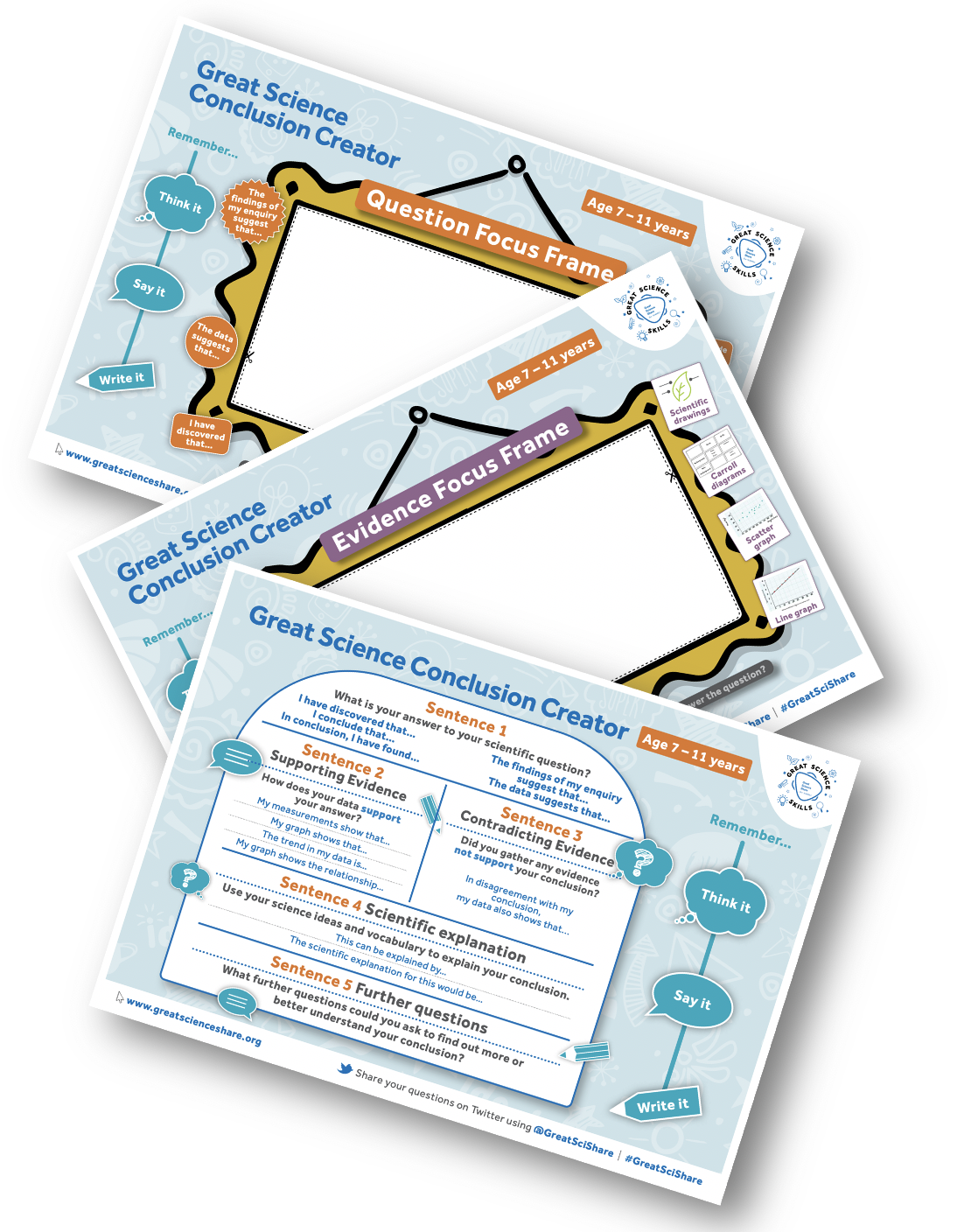Support your pupils to ask - investigate - share by focusing on the skills they need!
Great Science Skills Starters
Age 7-11
Use these brand new resources to support your pupils to develop scientific skills needed to carry out their own science enquiries. You will also benefit in further exploring how progression in scientific enquiry skills develops across your school.
Pupils need to develop their scientific skills through enquiries that are clearly related to the science knowledge they are developing.
The Great Science Skills Starters 7-11 are a collection of four direct to classroom videos that support pupils in learning a range of skills required to work through the scientific process. The videos aim to model the skill, provide an opportunity for pupils to practise the skill and finally challenging them to apply the skill when carrying out their own enquiries.
Each video has a set of teacher notes that explain where the skill fits in to the scientific process, suggest how to use the video in the classroom and give tips to develop the skill further with your pupils.
Duration: 8 minutes
7-11 planning enquiries
This video and the accompanying teacher notes are designed to help pupils aged 7-11 develop the more demanding skill of planning different types of enquiries with a particular focus on the variables that will be changed, measured and controlled as well as communicating plans in writing.
To get started, support your pupils to develop the art of question-asking using our collection of Question Makers; Question Spinner, Question Frame, Question Hand, Question Wonder, Question Teller and Question Share?
In planning their own investigations pupils will be thinking about the different enquiry types. For useful resources on the enquiry types visit EnquiringScience4All on the SEERIH website or download our Enquiry Poster Collection.
Duration: 7 minutes
7-11 measuring accurately
This video and the accompanying teacher notes are designed to help pupils aged 7-11 develop the more demanding skill of making accurate and precise measurements when gathering evidence to help them answer their scientific questions.
By taking the ideas on board pupils will become increasingly accurate, analytical, and reflective while becoming more skilful in gathering high quality evidence to answer their scientific questions.
Pupils will learn what is meant by accurate and precise measurements, understanding the importance of choosing the appropriate measuring device as well as the meaning of precise measurements and how to judge the precision of their data from their repeat measurements.
Duration: 10:38 minutes
7-11 interpreting data
This video and the accompanying teacher notes are designed to help pupils aged 7-11 develop the skill of using scatter graphs, bar charts and line graphs to analyse the data gathered in enquiries to spot trends, compare data and identify causal relationships.
By taking the ideas on board pupils will become increasingly accurate, analytical, and reflective as well as more independent in carrying out investigations. This video focuses on the skills of using graphs and charts to analyse and interpret the data that is gathered in science investigations.
Pupils will learn how to be successful in drawing scatter graphs, bar charts and line graphs as well as the right time to use them. They will also become familiar with the types of questions they should ask of their data to interpret their evidence so that it can be used to answer questions.
Duration: 7 minutes
7-11 DRAWING CONCLUSIONS
This video and the accompanying teacher notes are designed to help pupils aged 7-11 develop the more demanding skill of using their data to answer scientific questions and justify their thinking with scientific ideas by drawing conclusions.
This video focuses on the skill of drawing well-developed conclusions, supporting pupils in making connections between the question they are trying to answer and the data they have collected, using their analysis and interpretation of their evidence to justify their answers, and using their own scientific ideas to explain their conclusions.
Looking for ways in which to support your pupils writing conclusions? Why not use the accompanying Focus Frames and Conclusion Creator which are designed to support pupils in practising this skill independently?

















